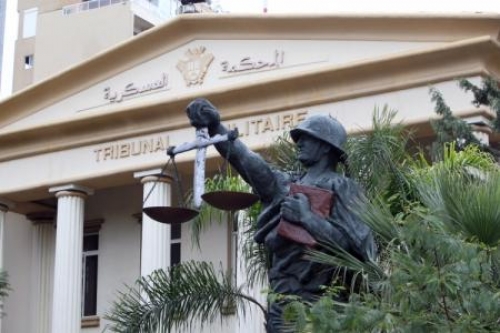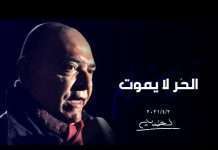Lebanon’s military court accused of intimidating activists
Hashem Osseiran/The Arab Weekly/February 13/17
Beirut – Recent military court proceedings against 14 Lebanese activists who had taken part in anti-government demonstrations to denounce the garbage crisis in 2015 raised concerns over the tribunal’s role in restricting freedom of expression and assembly among opposition groups.
The tribunal has jurisdiction over civilians for any interaction with security services or their employees. Although there is no public information about the number of civilians tried each year, the Union for Protection of Juveniles in Lebanon said 355 minors stood before the tribunal in 2016.
The demonstrators, who have been charged with protesting, forming riot groups, stoning security forces, treating security personnel harshly and harming the reputation of military institutions are not the the first political activists to be tried by the military court. Annual human rights reports published by Alef, a local watchdog organisation, in 1997 and 2002, list cases in which protesters have been tried by the tribunal.
“Monday’s (January 30th) hearing is part of a longer and ongoing trend that Alef has been observing, one that involves the use of the military tribunal to limit freedom of expression and assembly,” George Ghali, programmes manager at Alef, said in a phone interview.
Although a former Justice minister and a number of non governmental organisations have come out in favour of limiting the military court’s mandate and draft legislation has been crafted to do so, the tribunal enjoys broad and sometimes unclear jurisdiction.
Ghali said this was because the status quo is beneficial to the executive body, which enjoys strong and ambiguous links with the tribunal and can use the courts as a tool against opposition groups. These ties, he said, serve as an “autocratic parenthesis within the Lebanese democratic system”.
Lama Fakih, the deputy director of the Human Right Watch’s Middle East and North Africa division, expressed concern over trying activists in a court ostensibly closed to the public.
“When you have public monitoring of courts, when there is transparency, when the public knows what is happening in court, it does affect the way that proceedings move forward. That is why it is so important for civilians to be tried… before the public,” she said in a telephone interview.
Fakih said she was granted access to the courtroom for the first time on January 30th. “The defendants and their counsel felt that the treatment that they received before the court was, as one protester told me, 180 degrees different after there was independent monitoring,” she said.
Specifically, defence counsel was not interrupted and was given the chance to deliver a defence, which had not always been the custom in previous hearings, she said.
The most blatant indictment of the tribunal came from Layal Siblani, a 20-year-old Lebanese law student and one of the defendants charged with taking part in a “riot gang” during an October 8th, 2015, protest. “The court proceedings against us are being used as a tool for intimidation and instilling fear,” she said in a Skype interview the day after the hearing.
Siblani recalled the one night she was imprisoned in a tight, dark and drenched detention room with 12 other female detainees following her arrest during the demonstration. That along with the fraught and intimidating experience she has had with the military court over the past year-and-a-half led her to concede that the alleged strategy of intimidation worked.
“I will never stand on the front lines of protests ever again. I cannot afford to do that anymore,” she said, noting that she will seek out activism that does not involve public demonstrations.
Concerns over the jurisdiction and practices of the military court were documented in a Human Rights Watch (HRW) report published before the January 30th hearing.
The report cited allegations that the Ministry of Defence or the Lebanese Army used overbroad jurisdiction of the military courts as “a tool for intimidation or retaliation against political speech or activism”.
The Ministry of Defence, in a letter to HRW, responded that “the military judiciary in all of its statutes respects all national and international rules of law, especially what concerns respect for human rights”.
The statement came across as contradictory when, according to the International Covenant on Civil and Political Rights (ICCPR), which Lebanon ratified in 1972, governments are prohibited from using military courts to try civilians when civilian courts still function.
Previous Lebanese Army responses to HRW accused the group of “exaggerating facts on the basis of false or inaccurate statements” while denying accusations of misconduct detailed in the report.
**Hashem Osseiran is a reporter based in Beirut.

















